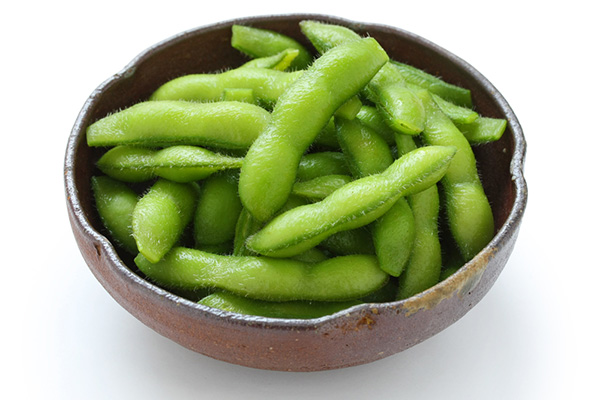The Soy Story
 Edamame photo via Shutterstock
Edamame photo via Shutterstock
It’s packed with protein, tastes great, and many vegetarians and vegans use it as a meat alternative. It sounds like a miracle food that is too good to be true, right? No, it’s just soy. The Chinese have been using the soybean as an integral part of their diets for more than 3,000 years. But, despite its nutritional qualities and the history, it’s now (and has been) at the center of a major debate. Soy contains estrogen-like compounds called isoflavones that have some concerned over the potential to increase cancer risk since high levels of estrogen are linked to an increase in breast cancer risk. Does this debate have merit?
The Research:
Boston Red Sox team nutritionist Tara Mardigan, says that for overall cancer risk, recent studies conducted in humans have consistently shown that soy is safe and that it may also help with prevention of some cancers, specifically breast cancer. “The evidence has been consistent, consuming moderate amounts of whole soy foods (not supplements) is safe for cancer survivors,” she says.
Elizabeth Jarrard, a Boston-based dietitian in private practice specializing in plant-based lifestyles, sports performance, and medical nutrition therapy says that the number of studies conducted in humans is limited, but emerging. The American diet is not rich in soy, so comparing high to low levels of soy intake is challenging. “Soy and cancer is a very controversial topic,” she says. “And most of the research is done on rats, which is not as good as research investigating soy consumption in humans.”
In some populations with high intakes of soy, the relationship between soy and cancer risk has been promising. For example, population studies in Asia (where women eat moderate amounts of soy, sometimes one to two servings a day) links soy consumption with lower breast cancer risk, Mardigan says. “The Shanghai Women’s Health Study found that women with the highest soy protein intakes throughout adolescence and early adulthood had about a 60 percent lower risk of pre-menopausal breast cancer than women with the lowest intakes.”
Soy Products: Which type is best?
Most dietitians would agree that whole soy products, like edamame and tofu, are the way to go. “Whole soy foods are richer in nutrients and antioxidants and are usually easier to digest,” Mardigan says. “Plus, they taste better.”
But, that isn’t the only reason to choose whole over processed soy. Most of the research showing the possible protective role of soy is largely done with whole food sources. Those who enjoy soy products should choose those from whole sources like tofu, tempeh, natto, edamame, soymilk, miso, and soynuts. “I always recommend to my clients that they eat traditional, non-processed soy foods,” Jarrard says. She recommends avoiding the highly processed soy isolates typically found in pills, powders, veggie burgers, and many types of nutrition bars.
There is also the question of organic versus conventional soy products. Mardigan explains that as with any food, you should try to find out how it’s grown by looking at the company website and being inquisitive. “There are many reasons you may wish to choose organic soy foods, less pesticide exposure being critical,” she says. “But it’s simply not known whether organic foods help reduce cancer risk more than their non-organic counterparts.”
Many studies including the ones cited in this article say that soy is safe. Do you have a different opinion or do you agree?


